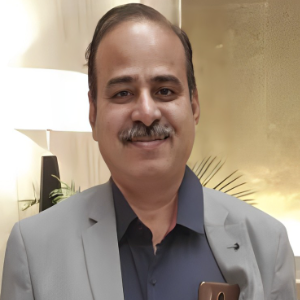Telemedicine in dermatology is a growing field, allowing for rapid and comprehensive diagnosis and management of skin disorders, with the potential to improve overall health outcomes. This is especially applicable in remote regions and other areas of the world where access to dermatology services is insufficient or not available. Telemedicine can improve many aspects of dermatologic care including clinical diagnostics, patient education, medication management, surgical triage, and follow-up care. Telemedicine is the use of electronic communication to provide health care from distance. It has been in use since the 1960s to provide access to medical care in remote or underserved areas. In dermatology, it allows for diagnosis and treatment of skin disorders and diseases through videoconference consults or store-and-forward technology. Telemedicine applications can be used for remote monitoring of skin conditions, such as atopic dermatitis or other chronic skin disorders. It is also used to assess biopsy results or advise on treatment or surgery decisions. Telemedicine has the potential to revolutionize how dermatology is practiced. It has the ability to provide rapid and comprehensive diagnoses without the physical burden on patients having to travel to a clinic or hospital. Additionally, telemedicine can improve access to dermatologic care in remote regions or other areas of the world that have inadequate or nonexistent access to care, as electronic consults can be done virtually across borders. Telemedicine has the potential to revolutionize dermatology care by reducing wait times and providing more comprehensive and convenient access to diagnostics and treatment. It can also lead to cost-savings, improved access to care, and better outcomes. It is important that the technology be used responsibly and ethically to ensure patient safety and privacy. In the future, telemedicine may become the gold standard for providing dermatological care.

Ravi M Rathod
KMCRI, India
Dechelette Corinne
La Peau Autrement, France
Irina Sergeeva
Novosibirsk State University, Russian Federation
George Sulamanidze
Plastic Surgeon at Clinic of Plastic and Aesthetic Surgery and Cosmetology TOTALCharm, Georgia
Nino Tsamalaidze
Ltd Karabadini+, Georgia
Lina Petrossian
California University of Science and Medicine, United States
Surajbala Khuraijam
Manipur Health Services, India
Shrutimita Pokhariyal
Symbio, India
Yasser Mohammed Hassanain Elsayed
Egyptian Ministry of Health, Egypt



Title : Paraneoplastic Autoimmune Multiorgan Syndrome or PAMS: Paraneoplastic pemphigus revisited
Sergei A Grando, University of California Irvine, United States
Title : Modern non-invasive methods for in vivo assessment of skin
Georgios N Stamatas, SGS, France
Title : Personalized and precision dermatology through the view of biodesign-inspired translational & data-driven applications: Revolutionary skin treatments for every concern in clinical dermatology integrating skin care experts and consumers
Sergey Suchkov, N.D. Zelinskii Institute for Organic Chemistry of the Russian Academy of Sciences, Russian Federation
Title : The next generation of threads: Lifting, volumization, and biostimulation in one powerful triple action
George Sulamanidze, Plastic Surgeon at Clinic of Plastic and Aesthetic Surgery and Cosmetology TOTALCharm, Georgia
Title : Lymphoproliferative diseases in the practice of a dermatologist
Irina Sergeeva, Novosibirsk State University, Russian Federation
Title : Art, skin, and dermatology: Interdisciplinary perspectives
Dechelette Corinne, La Peau Autrement, France
Title : Comparative efficacy of omalizumab and dupilumab in children with Chronic Spontaneous Urticaria (CSU): A retrospective cohort analysis
Molynna Nguyen, University of Toledo, United States
Title : "Mirror mirror on the skin” — A low-cost community strategy to reduce melanoma disparities in Washington, D.C.
Kayla Sampson, Georgetown University School of Medicine, United States
Title : Vitiligo: Not just an aesthetic disorder
Mateja Starbek Zorko, University Medical centre Ljubljana, Slovenia
Title : Personalized and Precision Medicine as a unique avenue to have the healthcare model renewed to secure the national biosafety: Advanced skincare solutions in individualized cosmetology, reconstructive plastic surgery and the modern beauty
Sergey Suchkov, N.D. Zelinskii Institute for Organic Chemistry of the Russian Academy of Sciences, Russian Federation